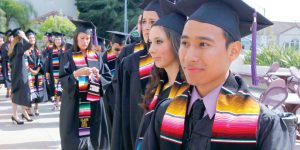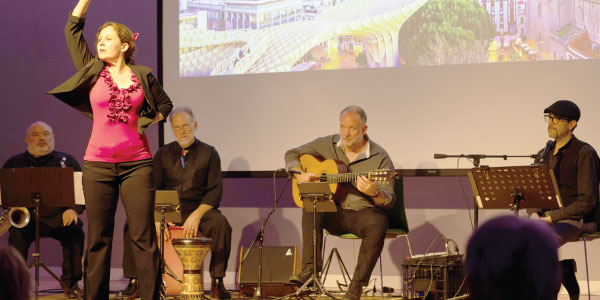
Every year, Pope Francis, the leader of the Roman Catholic Church delegates a person or group to compose special meditations to be read during the Stations of the Cross on Good Friday. This year, the pontiff chose Sister Eugenia Bonetti, a missionary nun who advocates for victims of human trafficking.
In her meditations, she exhorted society to think of children and women who are traded by human traffickers for organ harvesting, sexual exploitation or forced labor. Many are migrants, desperate for a new life; they provide defenseless prey for predators. The pontiff dedicated Good Friday services to them.
Throughout his papacy, Francis has strongly condemned human trafficking, which he characterizes as “a crime against humanity.” It’s one of his most dedicated causes. In April, he addressed a three-day Vatican-organized conference in Rome on the subject. He thanked religious congregations for their aid and support for human trafficking victims, and he called attention to the international community’s anti-trafficking initiatives: prevention, protection and prosecution.
Human trafficking is a $150 billion industry, according to Fortune (April 14, 2019). It’s a 21st-century global pandemic. Worldwide, there are some 40.3 million victims of human trafficking, estimates the century-old International Labour Organization. It’s here, too. Neither the U.S. nor our metro area is exempt.
In 2018, the National Human Trafficking Hotline took a total of 5,147 reports (13 percent more than in 2017); they came from all 50 states. Last month, police in Independence, Mo., arrested 24 people in an undercover human trafficking investigation. In the operation, they rescued four human trafficking victims.
“Human trafficking hides in plain sight,” Cindy McCain the widow of the late U.S. Sen. John McCain told Fortune. “It’s everywhere – it’s absolutely everywhere.”
McCain has worked for years to end human trafficking. She’s on the Arizona governor’s council on human trafficking and chairs the McCain Institute’s Human Trafficking Advisory Council. A critical piece to tackling human trafficking is ensuring that doctors, first responders, judges, prosecutors and schools are trained to recognize the signs of human trafficking and what to do when they see human trafficking.
In Kansas, the attorney general’s office is holding training sessions for restaurant and hotel workers on how to spot human trafficking and what to do. The Missouri AG’s office has a comprehensive approach. Attorney General Eric Schmitt created an anti-trafficking enforcement unit; issued new regulations imposing stricter criminal and civil penalties; convened a permanent human trafficking task force; collaborated with law enforcement, victims’ advocates and nonprofits to improve anti-trafficking training; and established a business council against human trafficking.
Schmitt says. “Human trafficking is occurring right under our noses, and we want to empower people with information.”
Nota bene:
If you or someone you know is a victim of human trafficking, call the National Human Trafficking Hotline at 1-888-373-7888.
Read the signs of human trafficking online at:
https://www.dhs.gov/blue-campaign/indicators-human-trafficking
https://polarisproject.org/human-trafficking/recognize-signs
https://sharedhope.org/join-the-cause/report-trafficking/
_______________________________________________________________________
Un crimen contra la humanidad
Cada año, el papa Francisco, el líder de la Iglesia Católica romana, delega a una persona o grupo para componer meditaciones especiales para que sean leídas durante las Estaciones de la Cruz el Viernes Santo. Este año, el Pontífice eligió a la hermana Eugenia Bonetti, una monja misionera que aboga por las víctimas de la trata de personas.
En sus meditaciones, exhortó a la sociedad a pensar en los niños y mujeres que son traficados por traficantes de seres humanos para la extracción de órganos, la explotación sexual o el trabajo forzado. Muchos son migrantes, desesperados por una nueva vida; son presas indefensas para los depredadores. El pontífice les dedicó servicios de Viernes Santo.
A lo largo de su papado, Francisco ha condenado enérgicamente la trata de personas, que él describe como “un crimen contra la humanidad”. Es una de sus causas más dedicadas. En abril, se dirigió a una conferencia de tres días organizada por el Vaticano en Roma sobre el tema. Dio las gracias a las congregaciones religiosas por su ayuda y apoyo para las víctimas de la trata de personas, y puso atención a las iniciativas de la comunidad internacional contra la trata de personas: prevención, protección y enjuiciamiento.
La trata de personas es una industria de $150 mil millones, de acuerdo a Fortune (14 de abril, 2019). Es una pandemia global del siglo XXI. En todo el mundo, hay alrededor de 40,3 millones de personas víctimas de la trata de personas, estima la Organización Internacional del Trabajo, que tiene un siglo de antigüedad. Está aquí, también. Ni los Estados Unidos ni nuestra área metropolitana están exentos.
En 2018, la línea directa nacional de tráfico de personas recibió un total de 5,147 informes (13 por ciento más que en 2017); vinieron de los 50 estados. El mes pasado, la policía en Independence, Missouri, arrestó 24 personas en una investigación encubierta de trata de personas. En la operación, rescataron a cuatro víctimas de trata de personas.
“La trata de personas se esconde a simple vista”, dijo a Fortune Cindy McCain, la viuda del fallecido senador estadounidense John McCain. “Está en todas partes, está absolutamente en todas partes”.
McCain ha trabajado durante años para acabar con la trata de personas. Ella está en el consejo del gobernador de Arizona sobre la trata de personas y preside el Consejo Asesor de Trata de Personas del Instituto McCain. Una pieza fundamental para abordar la trata de personas es asegurarse de que los médicos, los primeros respondedores, los jueces, los fiscales y las escuelas estén capacitados para reconocer los signos de la trata de personas y qué hacer cuando ven la trata.
En Kansas, la oficina del fiscal general está llevando a cabo sesiones para trabajadores de restaurantes y hoteles sobre cómo detectar la trata de personas y qué hacer. La oficina del fiscal general de Missouri tiene un enfoque integral. El fiscal general Eric Schmitt creó una unidad de control contra la trata de personas; emitió nuevas regulaciones que imponen penas criminales y civiles más estrictas; convocó un grupo de trabajo permanente sobre la trata de personas; colaboró con las fuerzas del orden, defensores de las víctimas y organizaciones sin fines de lucro para mejorar la capacitación contra la trata de personas; y estableció un consejo empresarial contra la trata de personas.
Schmitt dice: “La trata de personas está ocurriendo justo debajo de nuestras narices, y queremos capacitar a las personas con información”.
Nota bene:
Si usted o alguien que conoce es víctima de la trata de personas, llame a la línea directa nacional de tráfico de personas al 1-888-373-7888.
Lea los signos de la trata de personas en línea en:
https://www.dhs.gov/blue-campaign/indicators-human-trafficking
https://polarisproject.org/human-trafficking/recognize-signs
https://sharedhope.org/join-the-cause/report-trafficking/









